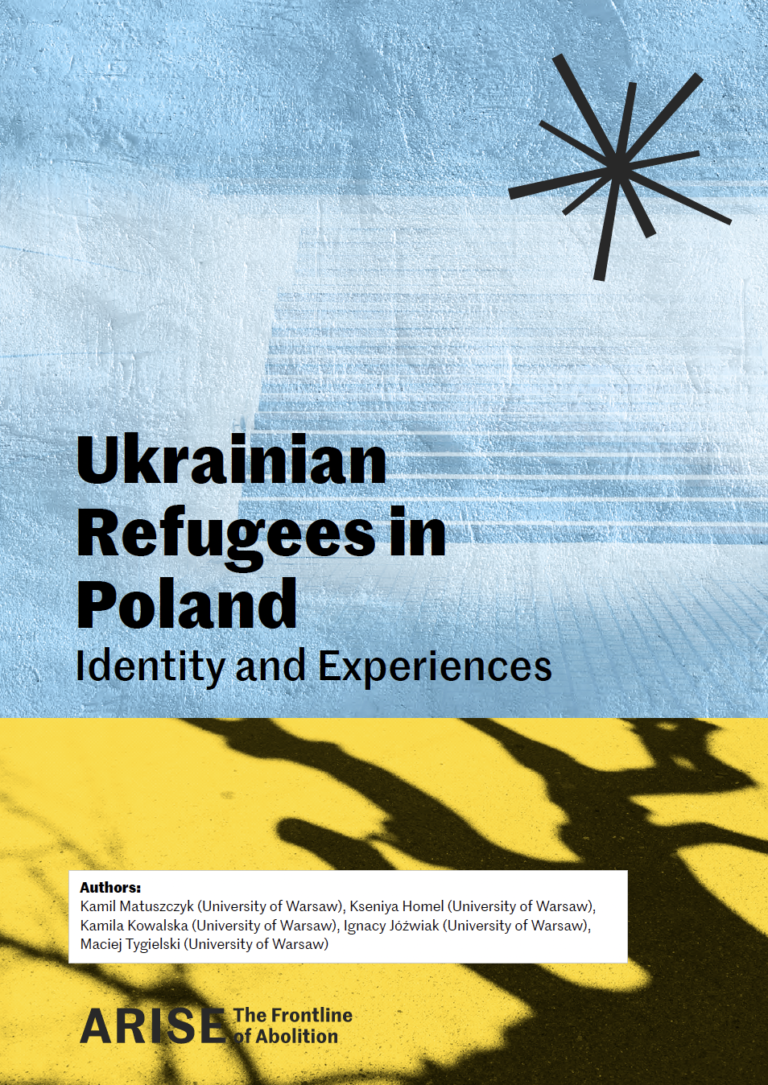Arise supported an incisive report into the Polish response to Ukrainian war refugees. The research analyses the responses of central government, regional authorities, civil society organisations, and households. It tracks the circumstances, experiences, and behavioural trends of the refugees, and provides valuable lessons for future refugee safeguarding. The report was carried out by 5 researchers from the University of Warsaw – Kamil Matuszczyk, Kseniya Homel, Kamila Kowalska, Ignacy Jóźwiak, and Maciej Tygielsk. Arise is very grateful for all their work, and the insight their research has provided.
The report analyses the circumstances and experiences of Ukrainians, tracking integration into Polish society, whether it be in schools, the labour force, or access to state services. Broadly, there are plenty of reasons to praise the Polish people and Polish government departments, for facing the challenge of accepting millions of refugees and acting boldly. The report describes wide access to state services provided to Ukrainians, and the willingness of citizens to aid refugees, from supplying accommodation to giving language lessons. Perhaps unsurprisingly, support levels decreased as months went by.
Despite these efforts, certain groups struggled to receive the special attention required. Blind spots and institutional weaknesses are highlighted in analyses of the treatment of marginal groups. These include pregnant or new mothers, the elderly, the disabled, and the chronically ill. Certain NGOs have focussed on meeting the special needs of these groups, but such vulnerabilities must be prioritised in future refugee responses. The report also suggests possible double standards in Polish responses to refugees, highlighting the contrast between Ukrainian and Belarusian border treatments. It has been suggested that the ethnic differences between the different groups of refugees prompted different responses (many waiting at the Belarusian border were families from Africa or the Middle East).
As is common in (and around) war-zones, risks of exploitative smuggling and human trafficking were observed from an early stage. Analysis of typical refugee identity, and the difficulties Ukrainians encountered, highlighted vulnerabilities and risks. A lot of mothers, travelling with young children whilst their husbands stayed in Ukraine, crossed the border unable to speak Polish. Potential abductors were observed from the beginning of the invasion, and the extent of abuse remains unclear. Future responses to mass refugee movement must be extremely wary of such risks.

